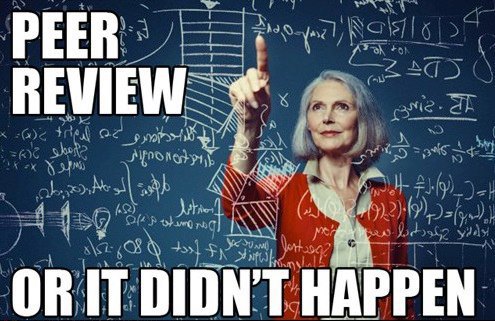

By Sonja Puzic|In a sea of information that’s just at our fingertips, it can sometimes be difficult to distinguish between scholarly articles and bogus research that’s harmful to science.
The issue is even more pressing with the proliferation of so-called “predatory publishers,” who often distribute poorly-vetted or fake research.
We answer some questions that can help you tell real science apart from junk.
What is a peer-reviewed article?
Peer-reviewed (also called refereed or scholarly) articles are written by researchers, doctors or scientists and then carefully vetted by other experts in the same field. The peer reviewers check the quality of the research, the methodology and the procedures used to evaluate the data. They may suggest revisions or reject an article that doesn’t meet scholarly criteria. It can take a long time before the article is published, due to the rigorous vetting process.
Why are peer-reviewed journals important?
Peer-reviewed publications adhere to strict guidelines and research standards. Articles that go through the peer-review process are held to the highest standards in each field of research and considered highly credible. Authors are also required to provide clear explanations of how they conducted the research, reference all of their sources of information and declare any potential limitations of their experiments.
Many peer-reviewed articles are also used as building blocks for further research in important fields of science and medicine.
What are open-access journals?
Open-access journals make scholarly articles available for everyone to read or download for free and without any restrictions. Open-access publications are still supposed to adhere to the rigorous peer-review process. PLOS is one example of a credible, reputable open-access publication.
What is “predatory” publishing?
In 2008, Jeffrey Beall, a U.S.librarian and associate professor at University of Colorado Denver, first started looking into the issue of “predatory publishing.”
The term often refers to publications that seek out submissions from researchers without specifying the fees they must pay until after they’ve submitted their research. The predatory publisher can essentially hold the manuscript “hostage” until the author pays to either get the article published or withdrawn. When submitted articles are published, that is often done without any peer reviews or proper editing. That can seriously damage the author’s reputation.
Beall is considered an expert in predatory publishing. He has compiled a list of potential, possible, or probable predatory scholarly open-access publisherson his website.
When he started the list in 2011, it only had 18 publishers. In 2016, that number soared to 923.
Beall has also published a document that lists criteria he and others use to detect a predatory publisher.